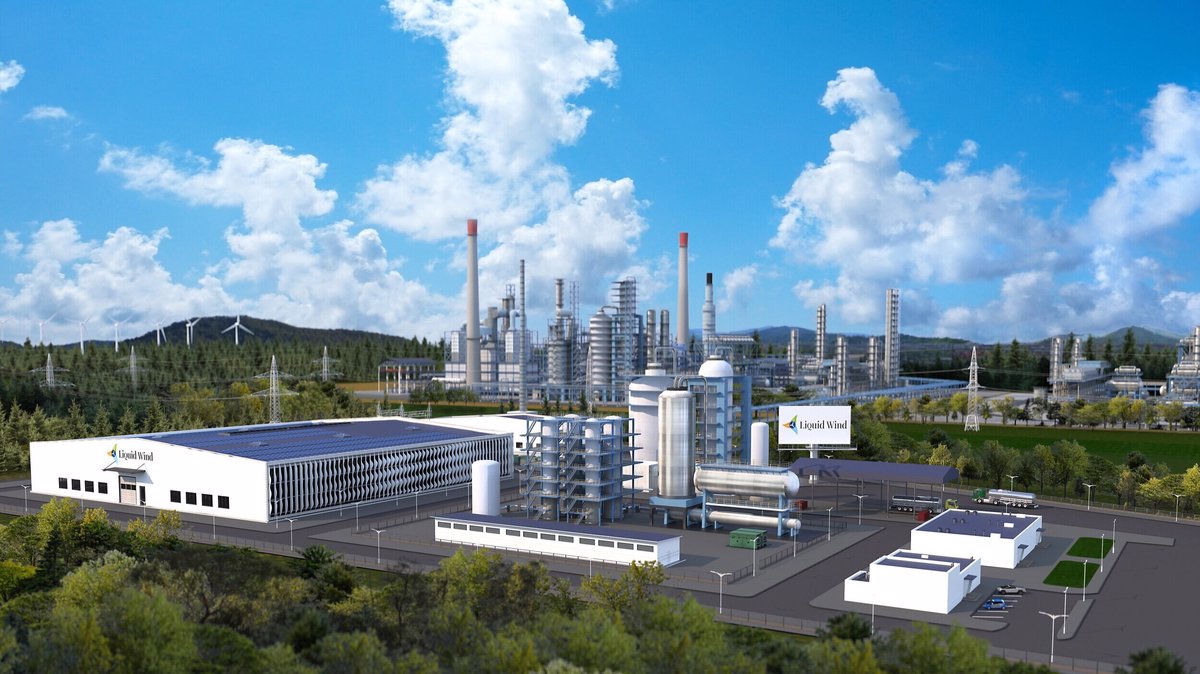Ørsted plans e-methanol plant in the US to meet shipping demand
Danish renewable energy major Ørsted plans to build a 300,000 mt/year e-methanol plant along the US Gulf Coast to cater to shipping sector’s potential green fuel demand.
 PHOTO: Ørsted's commercial-scale green methanol production facility, FlagshipONE in Örnsköldsvik, Sweden. Ørsted
PHOTO: Ørsted's commercial-scale green methanol production facility, FlagshipONE in Örnsköldsvik, Sweden. Ørsted
E-methanol, or synthetic methanol, is produced by combining 100% biogenic carbon dioxide (CO2) with green hydrogen. Biogenic CO2 is typically captured through either bioenergy with carbon capture and storage (BECCS) or through direct air capture (DAC).
In this case, Ørsted will build wind and solar plants in Texas, US to power electrolysis of green hydrogen. The biogenic CO2 will be captured from “an industrial facility”, it added.
E-methanol as a bunker fuel is virtually free of greenhouse gases (GHG) due to its synthetic origin. According to Ørsted, the fuel produced at its facility can cut a ship’s CO2 emissions by over 90% compared to conventional marine fuels on a well-to-wake basis.
The project has been selected to receive up to $100 million in federal grant as part of the US Department of Energy's funding program for green projects. Ørsted has not yet announced the timeline to commence production at the facility.
Incentivising e-fuel production
In addition to the federal funding, Ørsted's US project could also be eligible for tax breaks under the US government's Inflation Reduction Act (IRA).
The US IRA will provide a supply-side incentive to stimulate production of low- and zero-emission fuels in the world’s largest economy by giving tax breaks and subsidies to producers, a recent Mærsk Mc-Kinney Møller Center for Zero Carbon Shipping (MMMCZCS) study suggested.
Tax credits for green hydrogen production (45V credits) and tax credits for carbon capture and storage (45Q credits) are the most relevant for alternative maritime fuel producers in the US, the study explained.
Over a 30-year period, this will translate to IRA subsidies of around $16 per gigajoule ($16/GJ) for e-methanol production, according to MMMCZCS.
A US-based methanol producer, Lake Charles Methanol, also recently announced plans to construct a 3.6 million mt/year blue methanol production plant in the Port of Lake Charles in Louisiana.
The company has not specifically earmarked any portion of the production capacity for shipping as of now, “but significant volumes are available,” to cater demand from various sectors, including maritime, a Lake Charles Methanol spokesperson told ENGINE.
By Konica Bhatt
Please get in touch with comments or additional info to news@engine.online






